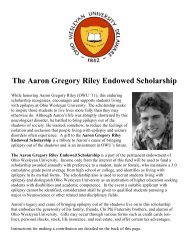Legal Rights of Children with Epilepsy in School & Child Care
Legal Rights of Children with Epilepsy in School & Child Care
Legal Rights of Children with Epilepsy in School & Child Care
Create successful ePaper yourself
Turn your PDF publications into a flip-book with our unique Google optimized e-Paper software.
<strong>Legal</strong> <strong>Rights</strong> <strong>of</strong> <strong><strong>Child</strong>ren</strong> <strong>with</strong> <strong>Epilepsy</strong> <strong>in</strong> <strong>School</strong> and <strong>Child</strong> <strong>Care</strong><br />
Sobol v. Burr, 888 F.2d 258 (2d Cir. 1989), cert. denied 110 S. Ct. 1298 (1990)<br />
The Eleventh Amendment and the EHA do not bar the award <strong>of</strong> compensatory education<br />
beyond the age <strong>of</strong> 21 to a student who has been denied a free appropriate public<br />
education.<br />
G. ex rel. RG v. Fort Bragg Dependent Schs., 343 F.3d 295 (4 th Cir. 2003)<br />
The court held that courts and hear<strong>in</strong>g <strong>of</strong>ficers may award compensatory educational<br />
services to be provided prospectively to compensate for a past deficiency. 343 F.3d at<br />
308.<br />
Reid v. District <strong>of</strong> Columbia, 401 F.3d 516 (D.D.C. 2005)<br />
In uphold<strong>in</strong>g a compensatory education award to a student, the court rejected an award <strong>of</strong><br />
one hour for each day the district denied the student an appropriate education. Instead, the<br />
court adopted a qualitative standard, f<strong>in</strong>d<strong>in</strong>g that compensatory education should aim to<br />
place students <strong>with</strong> disabilities <strong>in</strong> the same position they would have been <strong>in</strong> had the<br />
district not violated the IDEA. The court noted that compensatory awards must rely on<br />
<strong>in</strong>dividualized assessments. The court also held that IEP teams do not have the authority<br />
to reduce or discont<strong>in</strong>ue compensatory service awards.<br />
Board <strong>of</strong> Education <strong>of</strong> Fayette County, Kentucky v. L.M., 478 F.3d 307 (6 th Cir. 2007)<br />
The court agreed <strong>with</strong> the Reid court that a flexible approach to compensatory education,<br />
rather than an hour-for-hour award, was appropriate, because some students might need<br />
short, <strong>in</strong>tensive compensatory programs while others might need more extended<br />
programs that would exceed the number <strong>of</strong> hours <strong>of</strong> service they had missed. The court<br />
held that the IEP team cannot be given the power by a court or hear<strong>in</strong>g board to reduce or<br />
term<strong>in</strong>ate a compensatory education award.<br />
Extended <strong>School</strong> Year Services<br />
Alamo Heights Independent <strong>School</strong> District v. State Board <strong>of</strong> Education, 790 F.2d 1153<br />
(5 th Cir. 1986)<br />
The court held that if a child will experience “severe or substantial regression” dur<strong>in</strong>g the<br />
summer months <strong>with</strong>out a summer program, the student may be entitled to year-round<br />
services. The question is “whether the benefits accrued to the child dur<strong>in</strong>g the regular<br />
school year will be significantly jeopardized if he is not provided an educational program<br />
dur<strong>in</strong>g the summer months.” 790 F. 2d at 1158.<br />
Johnson v. Independent <strong>School</strong> District No. 4, 921 F.2d 1022 (10 th Cir. 1990)<br />
The court held:<br />
64<br />
a) Regression-recoupment analysis is not the only factor used to determ<strong>in</strong>e the<br />
necessity <strong>of</strong> a structured summer program. Other factors to be considered <strong>in</strong>clude








